SB23-170 Signed – Impact on Colorado students and Teachers
Colorado experienced 24 mass shootings in 2023. Although many disagree about a solution, at the end of April, Jared Polis signed four separate bills involving gun control and ownership in Colorado.
These bills include HB23-1219 which concerns a minimum three-day waiting period before the delivery of a purchased firearm, SB23-168 which allows members of the firearm industry to be held liable in civil court for misuse of their services or products, SB23-169 which concerns increasing the legal age to purchase a firearm to 21 which certain limited exceptions, and SB23-170 which would expand the list of people who can initiate the “red-flag” process, and requires the state to spend money on educational campaigns about the law, which allows more people to know about the Bill and when to utilize it.
Although all of these bills are important, SB23-170 has the most direct impact on schools. Currently, a family or household member and a law enforcement officer or agency can petition for an extreme risk protection order, however, this bill would expand this list to include licensed medical care providers, licensed mental health care providers, licensed educators, and district attorneys. An extreme risk petition order prohibits the respondent from possessing, controlling, purchasing, or receiving a firearm for 364 days. It is also important to note that anyone who files a petition is automatically protected from the employer disciplining or terminating an employee.
Democratic Senator Tom Sullivan authored the bill, “Teachers often know students the closest, and may be aware of what’s going on at home.” Teachers being able to call a red flag could add one more level of protection in schools. Senator Sullivan also emphasized that since SB23-169 raised the purchasing age to 21, “this bill is for college professors as well.”
Sullivan says the Red Flag law is severely underutilized, because he believes, “people aren’t aware they can use it.”
Lena Long-Shore, the legislative aide for Democratic Senator Steve Fenberg, spoke on his behalf and agrees “more people should have access to the bill” which will generally make it safer, but also adds “it’s hard to know the exact impacts it will have because it’s hard to calculate lives saved.” She also provided a fact sheet on the bill, shown below.
https://trackbill.com/bill/colorado-senate-bill-170-extreme-risk-protection-order-petitions/2379893/
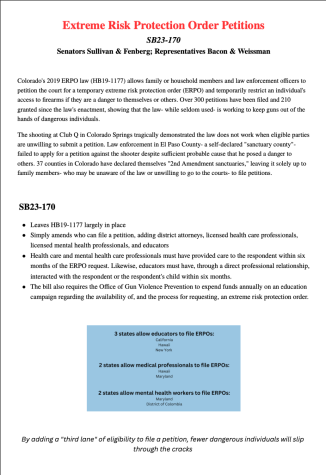
But students and teachers are the ones most impacted by the bill so it’s important to understand their opinion on it. Sophomore Serenity Gambrell is unsure the bill will be used correctly, “I feel like teachers could call anything they want a red flag” explaining further “if they have something against the student, even if it’s just something as little as bias, they could call it anything they want.” Freshman Dylan Noll says, “ I think there are situations where it could cause a positive impact in schools” but agrees with Gambrell “As long as the power is not abused… I think a teacher would have a good sense of what could be going on in a student’s life.” Along with Gambrell and Noll, teacher Kyle Brink agreed, “If you’re using it the correct way I think it’s a powerful tool…but in the end it all comes down to teachers using it to the best ability that they can.” But emphasizes the importance of teachers being educated, “if you know the signs and know the red flags then you know what to look for.”
Your donation will support the student journalists of Englewood High School - CO. Your contribution will allow us to purchase equipment and cover our annual website hosting costs.

https://express.adobe.com/page/oMTkiENwC4Hw0/
Hi, I'm Robyn, I'm currently a senior. If it's not track season, I enjoy spending my time doing yoga and...





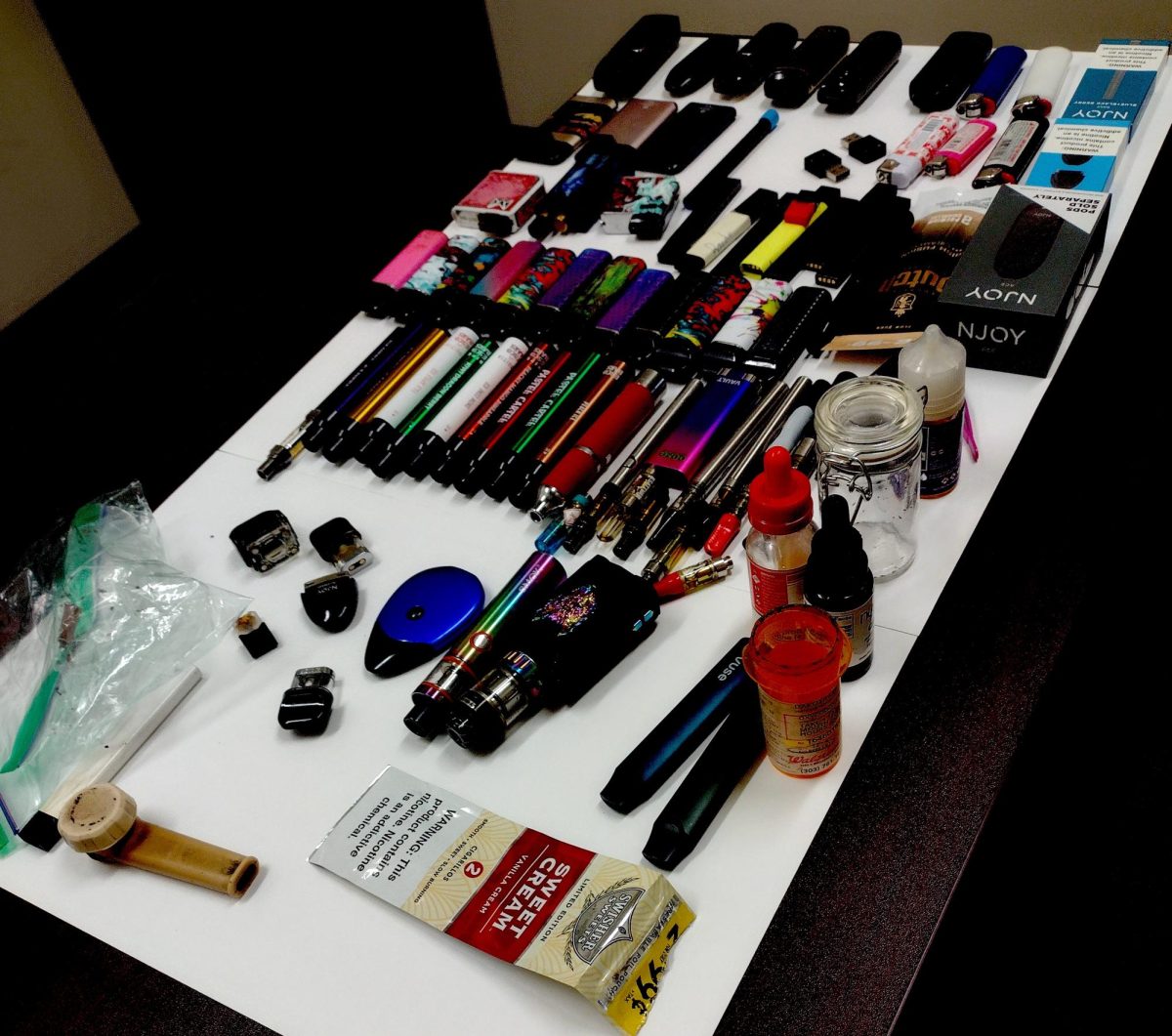






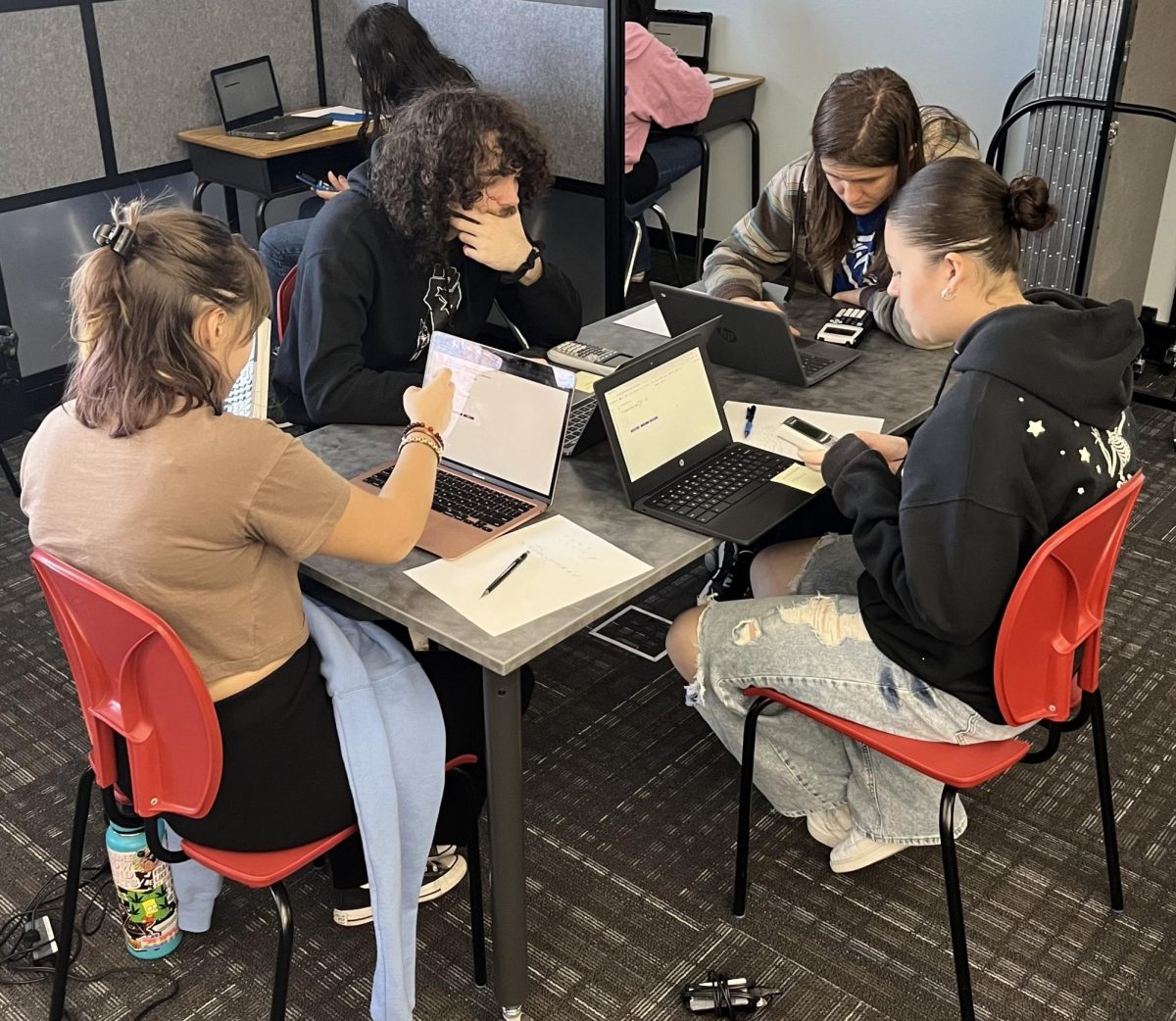


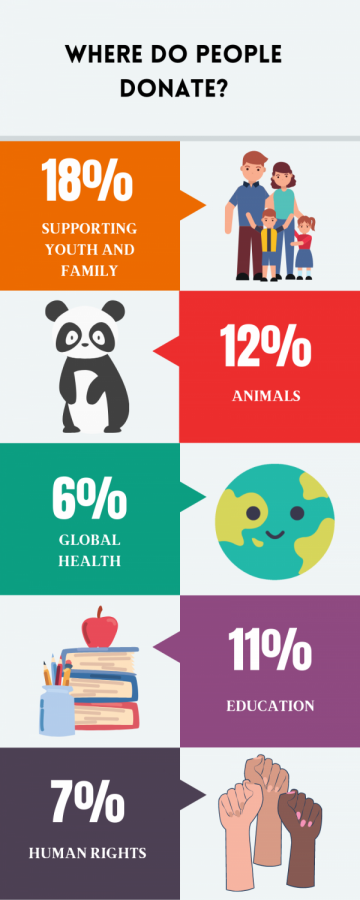
















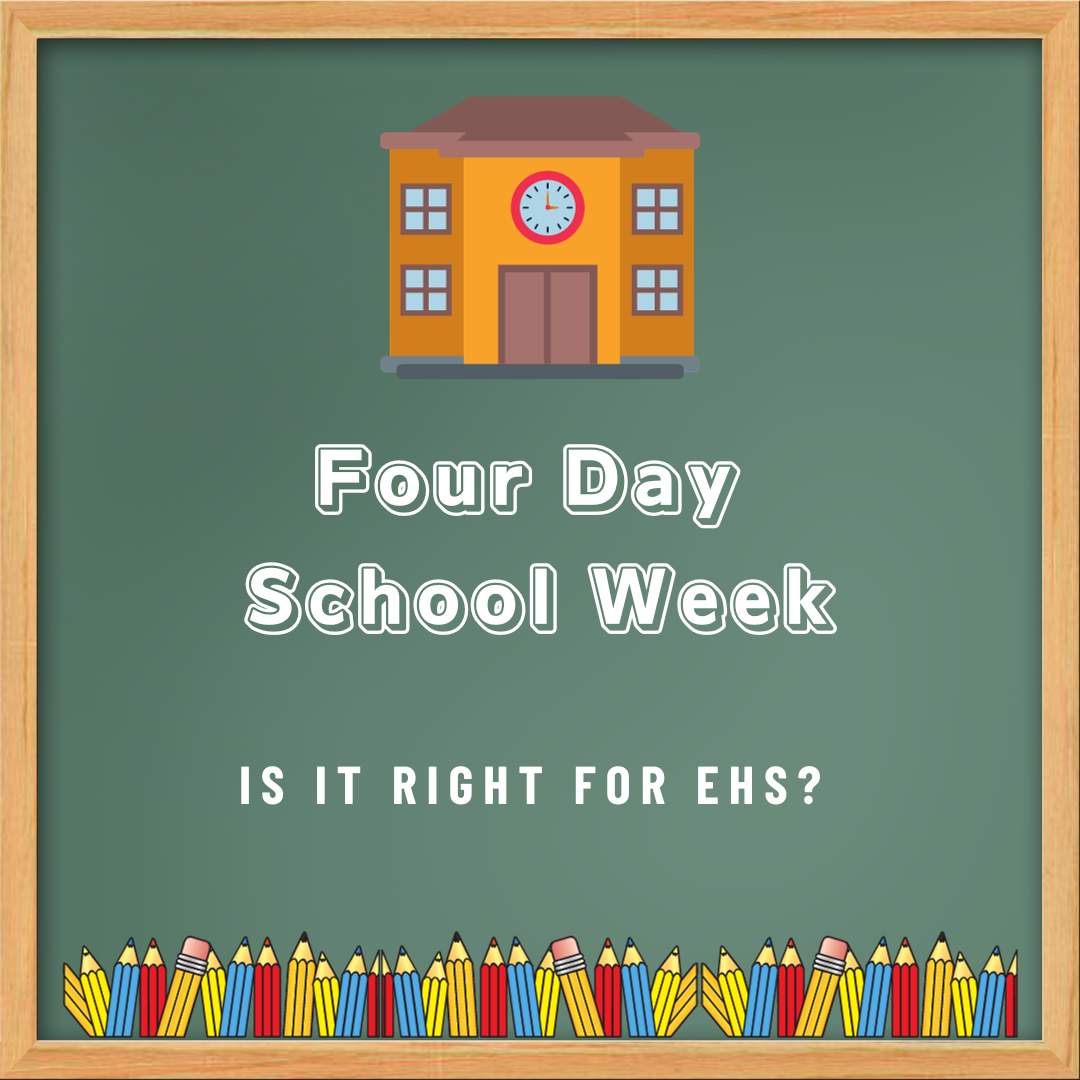


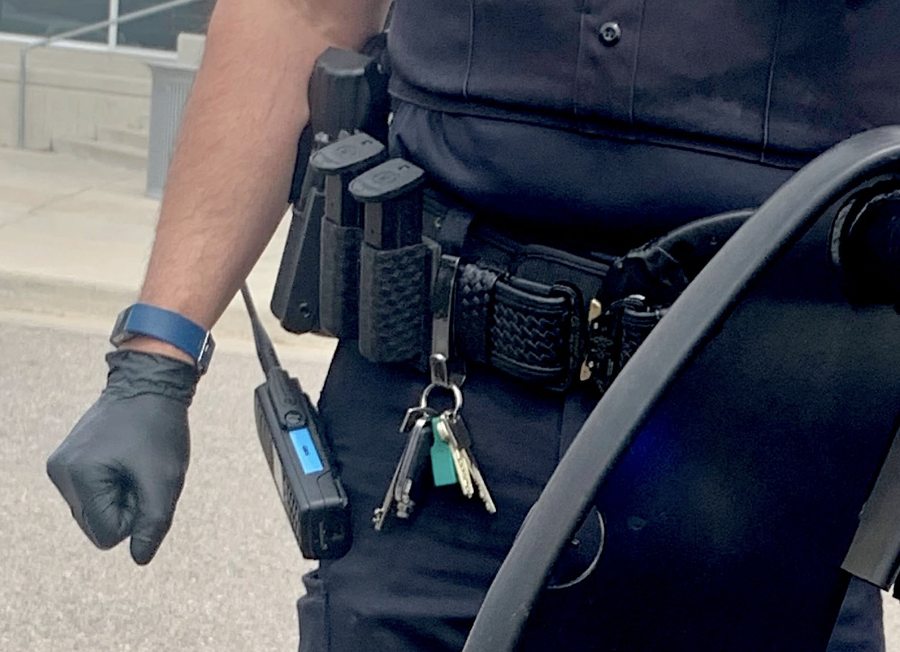






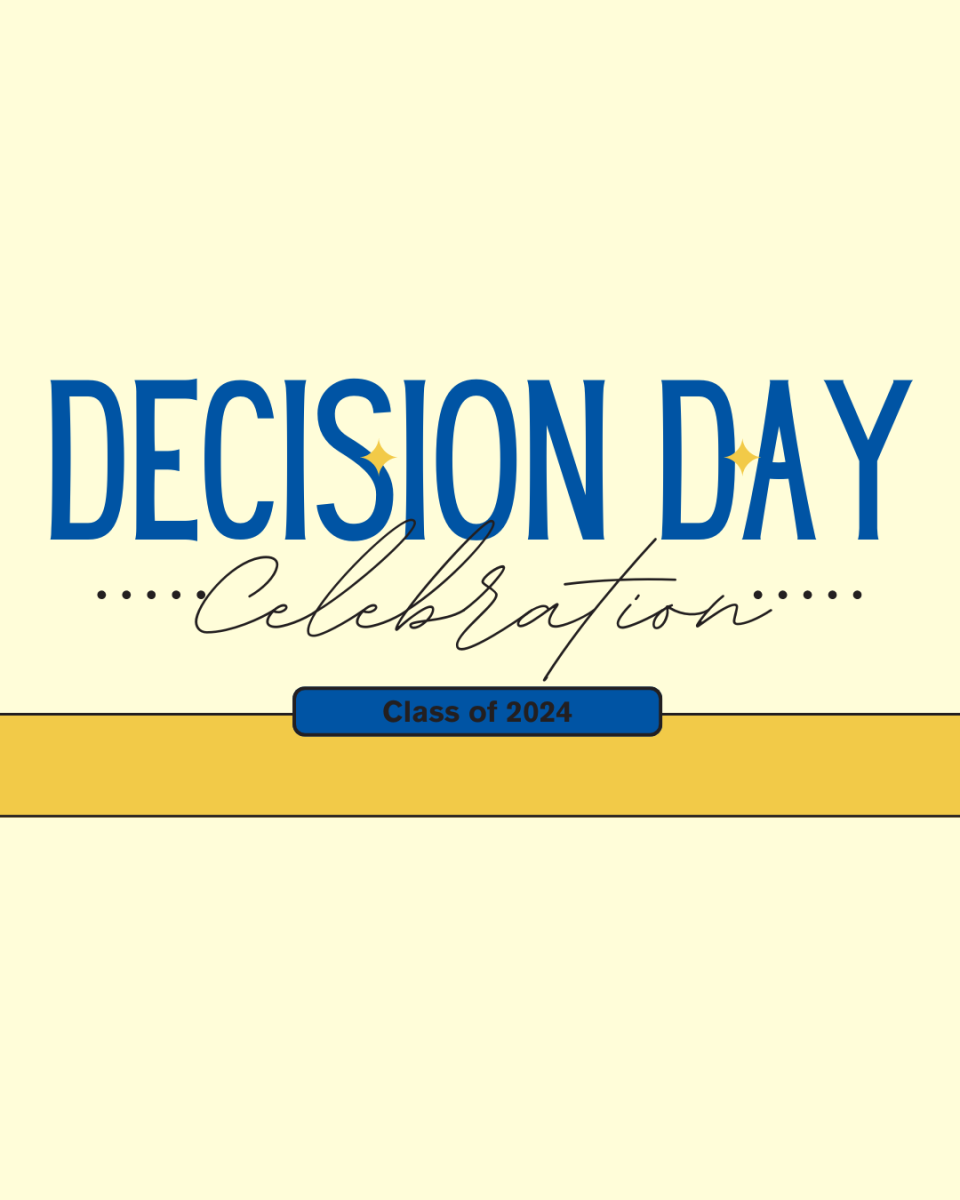




Dizzy • May 10, 2023 at 2:17 pm
Educators and medical professionals are already mandated reporters. Teachers especially are already privy to this type of information and already report it when neccessary. It’s underused tool because the bill and red flag law in their entirety are unconstitutional and don’t protect anyone. This only allows one person’s opion to violate another’s rights..